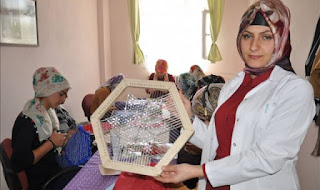The Problems With Suing the State
It's fun and exciting to be in a courtroom presenting witnesses, but why is this case at trial? Because the State is not like a normal business, with cost/benefit calculations that must be taken into consideration, the State can pretty much defend a case like this with no concern for the costs or the potential consequences. Nothing comes out-of-pocket to the lawyers defending this case, or their client, so they can afford to take a case like this to trial before someone with a brain determines that it's probably best to resolve this and move on. By that point, of course, Bobby will probably get a big verdict and the price of resolution will have gone up substantially.Pete Timmer, who retired in May after 29 years of work at the University of Florida's Citrus Research and Education Center in Lake Alfred, said in a video deposition taped in September that he suggested as early as 1998 that it would be difficult to eradicate canker, a bacterial disease that mars fruit and weakens trees.
Timmer's deposition was played Thursday in Palm Beach County Circuit Court during the fourth day of a class-action lawsuit being tried to determine the state's liability and whether the state's compensation was adequate for backyard citrus owners who lost their trees during the failed 11-year canker fight.
Timmer testified for the plaintiffs in the suit brought on behalf of more than 40,000 Palm Beach County homeowners whose 66,468 trees were removed as canker officials attempted to stop the disease's spread.
The homeowners are seeking additional compensation beyond the $100 Wal-Mart vouchers offered for the first tree and $55 cash payments for each additional tree.
The trees were removed under a policy that became law in 2002 and required all citrus trees within 1,900 feet of an infected one be taken out, even if they were healthy or showed no symptoms of infection. Prior to 2000, only trees within 125 feet of an infected tree were destroyed.
That meant an expansion of the removal zone from one-third of an acre to 260 acres, lead plaintiff's attorney Robert Gilbert said Thursday.
Under questioning by Gilbert, Timmer said he became convinced the program should be stopped after the devastating hurricane season of 2004.
"At that point I did not see any point in continuing the program," Timmer said.
Deputy Agriculture Commissioner Craig Meyer also testified Thursday, as Gilbert sought to show that the state knew that canker was already widespread before it implemented the 1,900-foot rule and that it anticipated legal challenges to the policy.
Meyer said he considered canker widespread in two counties at that time - Miami-Dade and Broward - but not in five others where pockets of canker were found.
Gilbert questioned Meyer about the state's position that fresh fruit shipped from a packinghouse is highly unlikely to spread canker.
"Our position is that fruit properly processed and sanitized poses no threat for the transmission of citrus canker," Meyer said.
Meyer also acknowledged that the Florida Department of Agriculture has never had an eradication program aimed at other citrus diseases such as greening, black spot and tristeza.
"I believe there has been a dramatic overreaction to greening," he said. "I could be wrong."


Yorumlar
Yorum Gönder